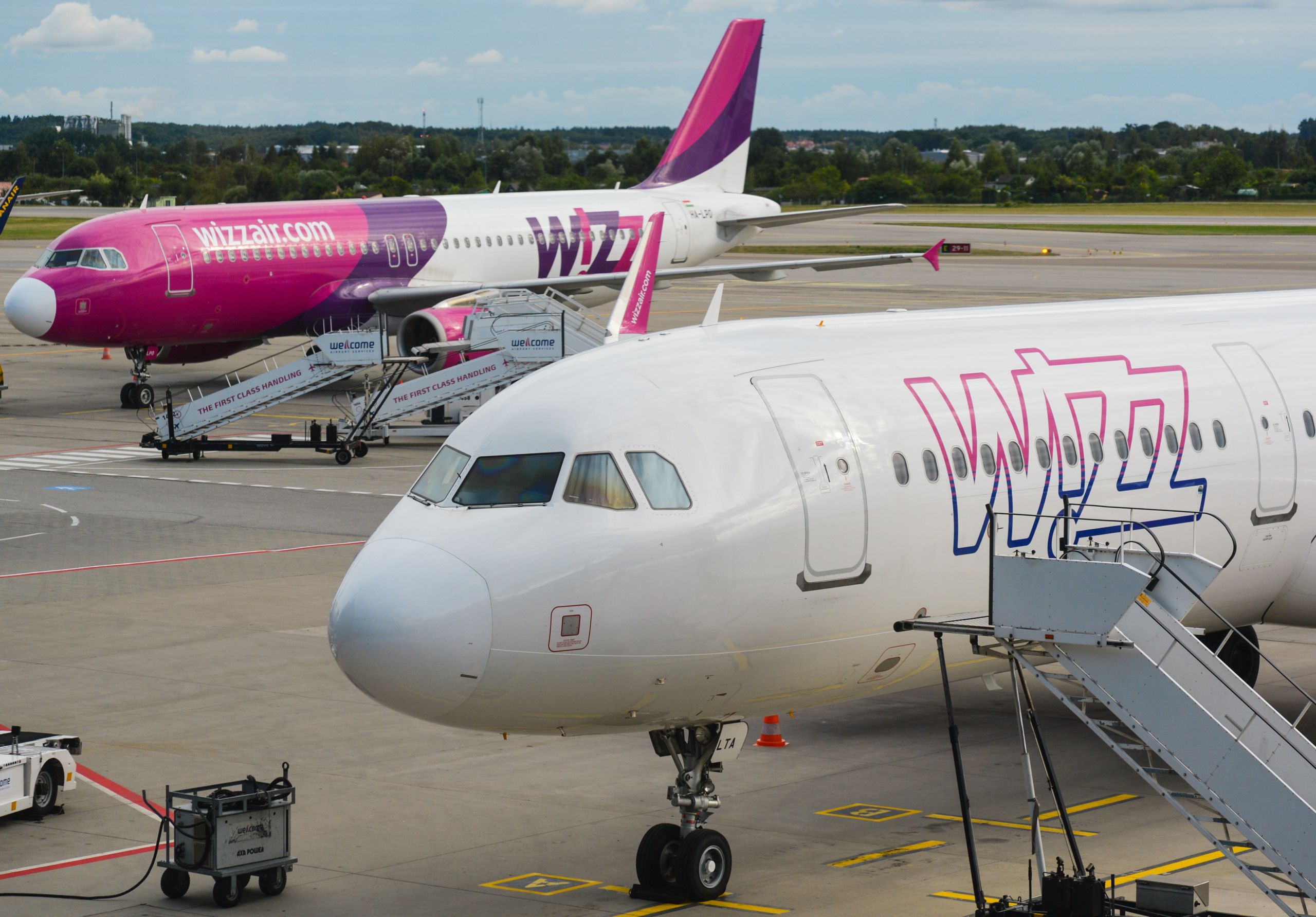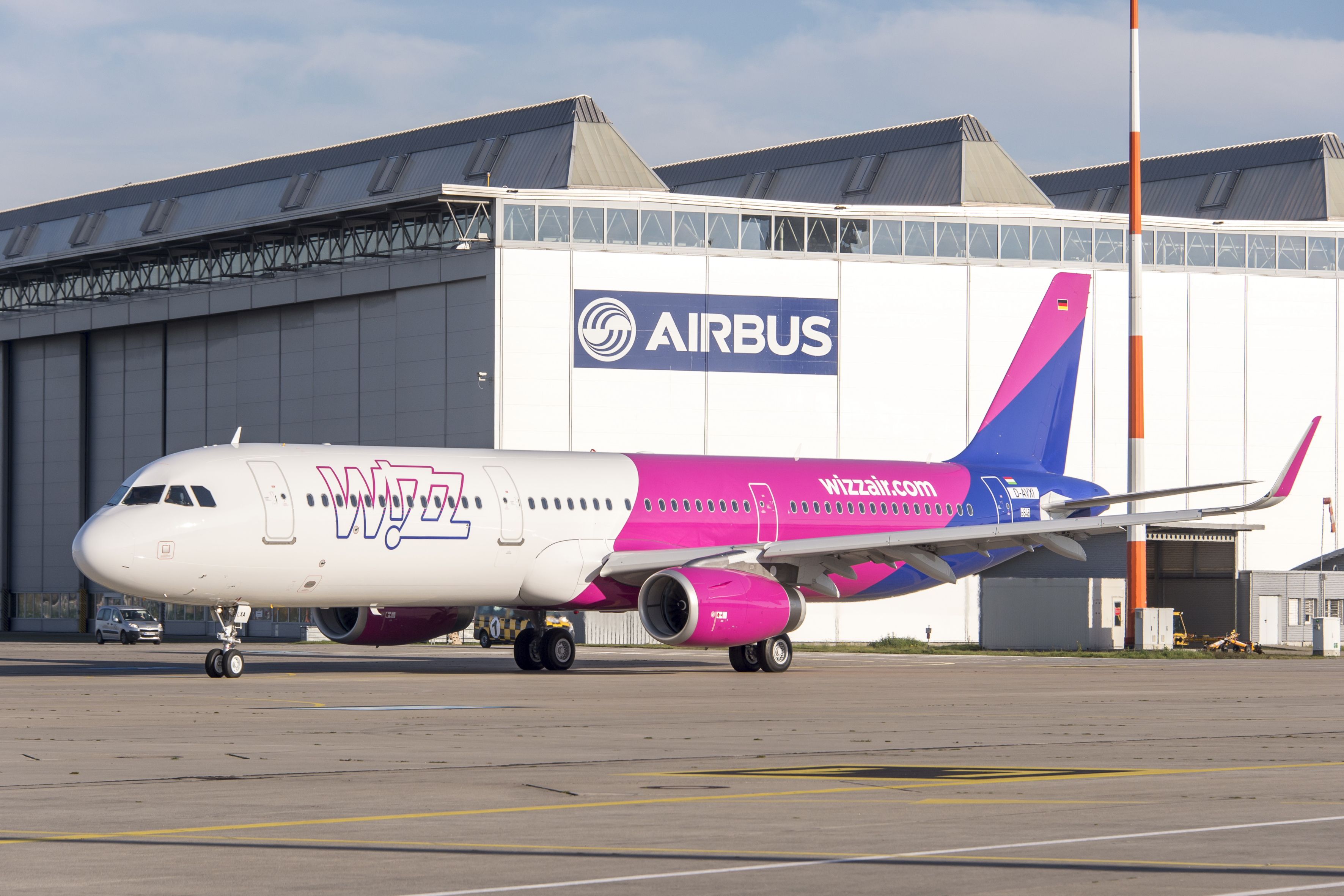Low-cost giant Wizz Air provided an update on its economic situation yesterday by publishing its financial results for the three months ending on June 30th, 2022. Compared to the same period last year, passenger numbers at the airline are booming. However, increased operating costs have resulted in a heavy loss.
The key figures
Through the coronavirus pandemic, Wizz Air has been keener than most airlines to sustain and even grow its operations. This resulted in the purple-clad budget airline carrying nearly 3 million passengers in the April-June quarter last year, at a time when European travel was still bound by a plethora of restrictions.
However, with Europe (and indeed the world as a whole) having since opened up considerably, Wizz Air's passenger figures for the same period this year have boomed. Specifically, the carrier has enjoyed a 312.4% increase in this metric, with almost 12.2 million passengers carried. With a total seat availability of just under 14.4 million, this gives an average load factor for the period of 84.7%.
Wizz Air's load factor for the same period last year was comparatively low, at just 63.6%. On the one hand, the rise in passenger demand has increased the carrier's revenue, with this figure having jumped from €199 million to €808.8 million. However, the cost of flying so many more customers has also hit the airline hard, resulting in an overall quarterly loss of €452.5 million ($462.2 million).
Stay informed: Sign up for our daily and weekly aviation news digests.
How does the airline view the results?
At a time when airlines around the world are beginning to return to profit, the heavy loss makes for alarming reading, particularly for a carrier that has been so keen to grow despite the challenges of the last few years. Wizz Air CEO József Váradi noted that a number of different factors are still proving difficult, stating:
"Whilst we are rebuilding the airline with greater scale, we remain very conscious of the challenging macroeconomic and operational backdrop. Fuel prices for the quarter were double pre-pandemic levels. Lingering restrictions from COVID-19 remained, particularly during April and May, while the war in Ukraine and supply chain disruptions affecting air traffic control, security and ground operation resources have impacted our utilization."
Nonetheless, he also remains optimistic that, by the time the next quarter's results come out, Wizz Air will be performing much better. Specifically, Váradi adds that:
"During Q1 F23 we invested to re-establish our proven pre-pandemic operating model, defined by our ultra-low-cost principles. We are seeing the results of this investment already through Q2 and we expect to deliver a material operating profit as revenue and pricing momentum continue to improve."
The airline industry is always full of new developments! What aviation news will you check out next?
European rivals have performed better
Away from the raw numbers, Wizz Air may also have cause for concern in terms of how its results stack up compared to those of its rivals. For example, as reported this week by Simple Flying, while easyJet also suffered a quarterly loss, this was significantly smaller than Wizz Air's, at £114 million ($137.1 million).
Meanwhile, Ryanair made headlines recently by announcing that it had achieved a €170 million ($174 million) post-tax profit for the last quarter. Compared to figures like this, the scale of Wizz Air's poor results is plain to see.
Gridpoint Consulting notes that deciding not to hedge fuel amid the pandemic has particularly hampered the carrier's recovery efforts. It has now restarted this process, so it will be interesting to see how this helps going forward.
Source: Gridpoint Consulting




